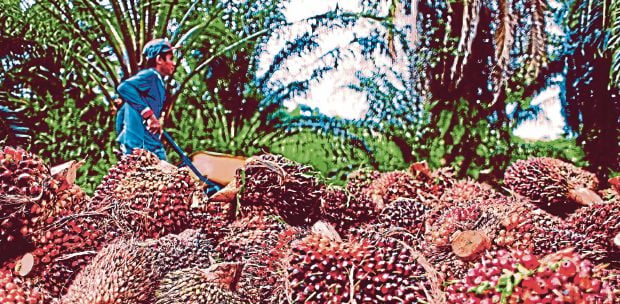THE rise in food prices is a global concern. The high prices of chicken and eggs have preoccupied our Agriculture and Food Security Ministry for some time now, but with no real solution in sight.
Protein, an important nutrient, is at the centre of the concern. It has been reported that from 2000 to 2019, rising incomes in Asia have increased the consumption of proteins by a staggering 63 per cent, much more than other regions. It was six per cent in North America, eight per cent in the European Union, and seven per cent in Latin America.
Motivated by trendy healthy diets, the share of plant-based proteins in East Asia could increase to two-thirds by 2030. Meat-based protein is trending down and in the push for better food security, plant-based proteins' share in Asia could grow from 59 per cent to 85 per cent in the next 10 years.
Plant-based proteins are getting attention for a number of reasons. They need less land and water to produce, and reduce greenhouse gas emissions by over 95 per cent, compared with animal-based ones.
A report predicted protein consumption growth in Asia by analysing different future scenarios, like business as usual, healthy diets, food security and projected resource constraints. Scenarios are not mutually exclusive, and there's a good chance of all trends playing out simultaneously in the next decade.
Policymakers, producers and agrifood technology providers need to start thinking about their impact today. Many reports have suggested that the protein industry is on the brink of radical transformation.
Many factors may drive this global shift. Climate change concern and impact is one. The uncertain supply to feed a growing world population is another. Current models for protein production are taking a heavy toll on our planet.
Yet, demand for it will keep growing. Increasing world population, affluence and urbanisation, as well as changing eating habits all contribute to the need for a systemic change, according to an article shared on the web.
No doubt, protein-producing companies need to reconsider their business strategy. Protein is an essential part of a healthy diet. However, the current production system may not be sustainable. What will the protein industry look like in 2040? And what high-impact initiatives can the industry undertake today for success tomorrow?
Many agree investing in the right research and development to better understand the technologies that will shape the future of the world protein business is of paramount importance. We need policy direction in science, technology and innovation to guide Malaysia to the new socio-economic opportunities that future proteins promise.
The World Economic Forum has identified "Foods of the Future" as a topic of major concern. Stakeholders across the protein ecosystem grapple to get a better understanding of what is happening today and what is likely to happen in the future.
A white paper on the future of protein is being hatched by some parties. Companies should monitor what will emerge. What has become clear is that, to survive companies will need to make big changes to the core business model or even pivot to a new one.
Within the shifting landscape of the protein industry, technology plays a crucial factor. Biotechnology, artificial intelligence, data analytics and blockchain can function as an accelerator to a more sustainable future.
The shift towards a sustainable future of protein has profound strategic, financial and technological implications for companies. A range of methodologies to help companies design a strategy in an uncertain world is needed. Not all sources of protein are the same though.
Animal-sourced proteins, like meat, seafood, milk and eggs, play a crucial role in the agrifood system. They are "complete proteins" containing all essential amino acids and provide a full range of micronutrients like iron, zinc and vitamin A. Questions on their sustainability have been raised.
Now, scientists focus on three non-animal sources, including insects, fungi and algae. Whether they will become reality would much depend on technology and, most importantly, public acceptance.
There is no denying that we have for centuries been strongly addicted to the animal-based proteins. Change is not easy.
The writer is a professor at the Tan Sri Omar Centre for STI Policy, UCSI University





